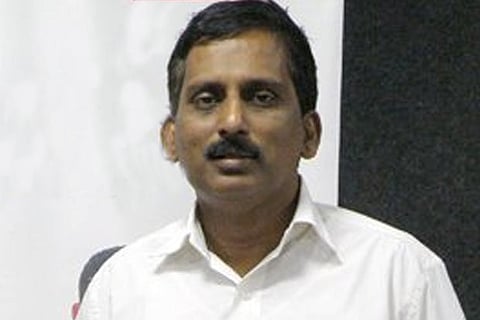

Chennai
Some believe that the State has a right to kill as a form of tit for tat, as deterrent, and that is why we still have the capital punishment in our statutes.
There are several arguments for doing away with the death penalty from the statute book. Let me place four of them before you:
One, who gives the State the right to play God? How do one, three, or five ‘wise’ men decide whether someone should live or die? Yes, we need a criminal justice system but we need to think multiple times before it invokes the death penalty, aka state-sponsored killing. What happens if the judgment is not unanimous? When three learned judges, looking at the same pieces of evidence and arguments, come out with different decisions, who is right and who is wrong? What happens to the principle of benefit of the doubt? What happens to the dictum that a hundred guilty men may be allowed to go scot-free than one innocent man is wrongfully convicted?”
Two, worse still, what if the decision turned wrong? Can you give back the life wrongfully taken? I am not shooting in the dark. In the case of Thomas Griffin and Meeks Griffin, the two were convicted of murder. The witness was Monk Stevenson, another suspect. He later admitted he blamed them because they were wealthy, and he assumed they had the money to beat the charges. The Griffin brothers were innocent, but they went to the electric chair nevertheless. In India, Dhananjoy Chatterjee, a liftman, was executed after 14 years in prison on charges of raping a schoolgirl. The jail authorities had forgotten that he was in Death Row. Later, the Supreme Court, in Shankar Kisanrao Khade vs. the State of Maharashtra, remarked that the “criminal test” had not been satisfied in the sentencing of Chatterjee. Now, a study by two professors of the Indian Statistical Institute suggests the State might have got the wrong man, and that the murder was a case of honour killing. Three, judgmentis not math. It becomes judge-centric. The Amnesty International in a 2008 report says as much. “Two men, Dharmendra Singh (2002) and Kheraj Ram (2003), were convicted because they killed their wives, suspecting infidelity. The former was sentenced to life, the latter to death. Two others murdered their wives and children because of ‘nagging.’ The former’s sentence was commuted; the latter was sent to the gallows.”
Four, legal experts also fear there are occasions when the police frame people to because they are under pressure to solve a case. If the death penalty itself is anachronistic, faking an encounter, pretending self-defence, is worse. When revenge substitutes justice, we would be walking our wayto disaster.
The fact that we could have got the wrong person, the fact that different judges read evidence differently, the thought that the State has no right to play God, the view that cops may turn rogue are enough indications that capital punishment must go. It’s morally reprehensible; staying on the statute makes it legally barbaric. According to Amnesty International, “by 2018, 106 countries had abolished the death penalty in law for all crimes, and 142 countries had abolished the death penalty in law or practice.” That should be good evidence of its incivility.
I rest my case.
(The writer is anauthor and finance expert)
Visit news.dtnext.in to explore our interactive epaper!
Download the DT Next app for more exciting features!
Click here for iOS
Click here for Android